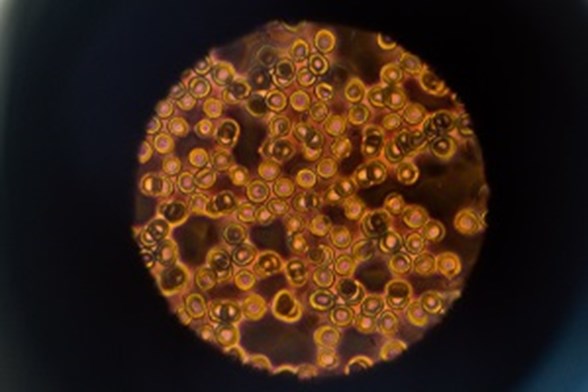
Human genetic services
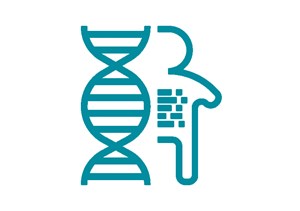
We offer a comprehensive range of support services to human genetic research; from lymphocyte separation, Epstein Barr virus (EBV) immortalisation and cell banking, to preparation of DNA from whole blood and cell lines.
We have more than twenty years experience of providing services to UK human genetics research, and expertise spanning the initial Human Genome Mapping Project and in to the era of functional and translational genomics and systems biology, during which time we have processed more than 80,000 samples on behalf of our customers.
The following services are available:

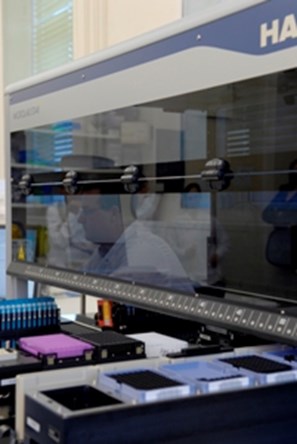
DNA extraction
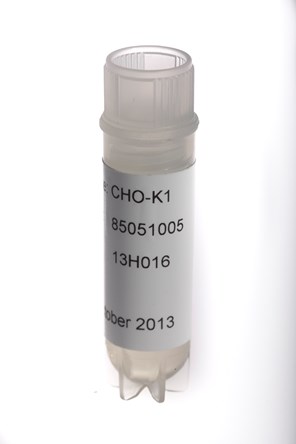
Frozen cells for DNA and RNA extraction
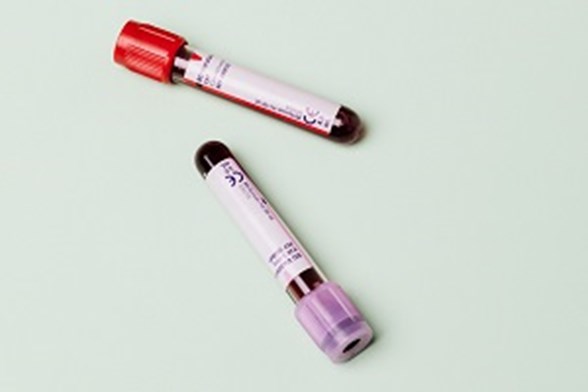
Lymphoblastoid cell line generation
Please Note: Where possible, do not send samples in glass collection tubes. If glass collection tubes are being sent, this must be made clear on the packaging.
Human Genetic Services can be tailored to meet your specific needs - contact us to discuss requirements or for a specific quotation.
ECACC is accredited to international quality standard ISO 9001:2015, and all procedures are managed in accordance with the standard.
Human Genetic Support Services (HGSS) deposit form
Please complete and submit the Human genetic support services form here.
The importance of cell lines in genomics research
Developments in the fields of genomics, systems biology and translational research demand a reliable source of cellular material. Alternative technologies are available for generating large quantities of DNA; however, the conversion of a blood sample from an individual participant in a biobank or genetic study cohort to a lymphoblastoid cell line ensures a permanent, expandable and renewable supply of genetic and other cellular material, without any requirement to return to the donor.
A cryopreserved cell bank, maintained by an established, specialist organisation, effectively ensures a permanent supply of cellular materials in potentially limitless quantities. Consequently study material can be widely distributed, and will be available many years after the initial study for follow-on studies that may not have been originally anticipated, or which may not be possible with existing technologies.
Increasingly, lymphoblastoid cell lines may be viewed as surrogate tissue for expression studies, where access to appropriate primary tissue is limited. (Dixon et al. (2007) A genome-wide association study of global gene expression Nature Genetics 39, 1202 - 1207).
In many respects a cell bank can be regarded as a means of immortalising a very valuable study cohort, and is the soundest means of underpinning a genetic collection and maximising its value in the long term.
Important safety information
You must inform ECACC immediately of any known high risk patient, or if you retrospectively learn that a sample already sent to ECACC is hazardous. Unless otherwise agreed under the terms of the Service Agreement, ECACC will dispose of high risk blood or PBL samples from HIV, Hep B or Hep C positive individuals without processing.
Evidence of ethical approval
Culture Collections need confirmation of Research Ethics Committee (REC) approval for all Genetic Services deposits from the depositor under The Human Tissue Authority (HTA) regulations. A copy of the REC approval form must be supplied by the depositor with confirmation of REC expiry or review date.
For large numbers of samples collected as part of an ethically approved study
Upon written acceptance of the quotation, a Service Agreement will be prepared detailing the services to be provided by ECACC and requesting basic information about the study. A specimen copy of the detailed patient consent form for the study must also be provided. A signed copy of this agreement, complete with a Purchase Order number is a prerequisite for ECACC to accept any samples.
For small numbers of samples, as part of an ethically approved study
Please contact ECACC directly before collecting any samples, to inform us of your intention to send a blood sample. Each sample must be accompanied by a completed Human Genetic Support Services (HGSS) deposit form and a Purchase Order number.
Blood samples
-
All samples must be anonymised/de-identified, clearly labelled with a unique identifier, preferably with a barcode, and accompanied by an appropriate deposit form
-
Prior warning should be given of any samples expected to arrive at ECACC at the weekend
-
Samples must be packaged in accordance with International Air Transport Association (IATA) regulations (full details to be found at www.iata.org)
Blood samples for cell lines
-
Collect, ideally, 6-8ml blood using acid citrate dextrose (ACD) or citrate phosphate dextrose adenine (CPDA) blood tubes and ensure proper mixing by gentle inversion of the tubes. Always fill the tube to the required level
-
Samples should be sent on the day of collection to arrive at ECACC the next day whenever possible. Blood samples in Heparin or EDTA must arrive at ECACC within 48 hour of collection, as lymphocyte viability deteriorates significantly after this time with these anti-coagulants
-
Samples must not be refrigerated or frozen, but should be shipped at ambient (15-22°C) temperature
-
If a third party is sending blood on your behalf, please ensure that they are made aware of these recommendations
Frozen Peripheral Blood Lymphocytes (PBLs)
-
If you are planning to send frozen PBLs to ECACC for EBV transformation, we recommend that you send your PBL preparation protocol to ECACC for review
PBLs should be prepared in a dedicated, Mycoplasma-free area that is not used for routine cell culture or the processing of human pathology specimens. If the former is not possible, screening of cell cultures for Mycoplasma contamination should be carried out on a regular basis. ECACC must be informed of any potential risk of Mycoplasma contamination
-
PBLs should be frozen to below -80°C at a controlled rate in the presence of cryoprotectant. Internal threaded cryovials which are clearly and unambiguously labelled (preferably bar-coded) with the sample reference on wrap-around, low temperature resistant labels, should be used. Do not use hand-written labels
-
Frozen PBLs should not be stored at -80°C for more than a few days, as this leads to loss of viability. Longer term storage should be at temperatures below -130°C in a liquid nitrogen cryotank
-
Frozen PBLs must be sent to ECACC in an insulated carton, packed in dry ice sufficient for 3-5 days in transit
-
A reference blood spot card, for verification of cell line identity, should be provided for each sample
-
PBL shipments must be accompanied by a list of the samples and their identities, grouped to reflect the packaging. The identifiers should be identical to the cryovial labels. Affix reproductions of the barcodes if appropriate
-
At least 24 hours notice must be given to ECACC prior to shipment of frozen PBLs.
Samples should be addressed to:
Genetic Support Services - Culture Collections
UK Health Security Agency
Salisbury
Wiltshire
SP4 0JG
UK
